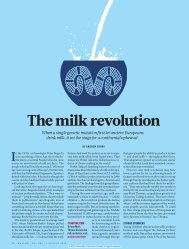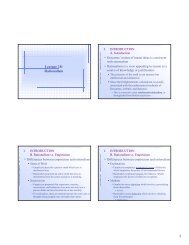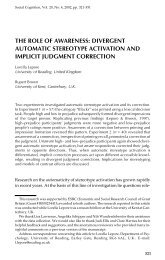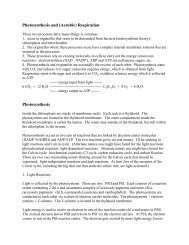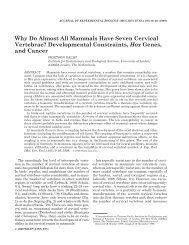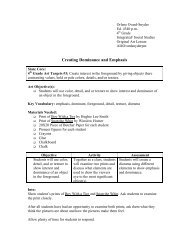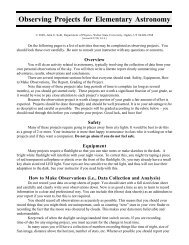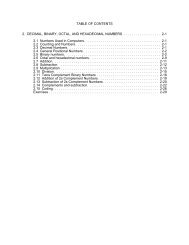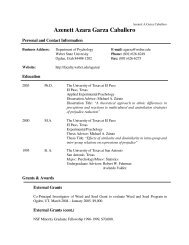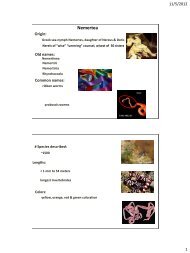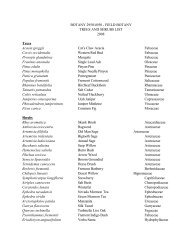Lecture 11: Functionalism, the US brand of Psychology
Lecture 11: Functionalism, the US brand of Psychology
Lecture 11: Functionalism, the US brand of Psychology
Create successful ePaper yourself
Turn your PDF publications into a flip-book with our unique Google optimized e-Paper software.
IV. FUNCTIONALISM AT COLUMBIA<br />
C. E. L. Thorndike<br />
E. L. Thorndike<br />
Thorndike studied animal behavior<br />
true to functionalism’s use <strong>of</strong> various<br />
methods.<br />
Animal research in psychology helped<br />
by Conwy Morgan’s (1894) canon<br />
In no case may we interpret an action as <strong>the</strong><br />
outcome <strong>of</strong> <strong>the</strong> exercise <strong>of</strong> a higher<br />
psychical faculty, if it can be interpreted as<br />
<strong>the</strong> outcome <strong>of</strong> <strong>the</strong> exercise <strong>of</strong> one which<br />
stands lower in <strong>the</strong> psychological scale<br />
Margaret Floy Washburn (1908)<br />
published several books and articles on<br />
animal psychology.<br />
IV. FUNCTIONALISM AT COLUMBIA<br />
C. E. L. Thorndike<br />
E. L. Thorndike<br />
<strong>Psychology</strong>’s first learning <strong>the</strong>ory<br />
Combines associationism and hedonism<br />
and consists <strong>of</strong> <strong>the</strong> laws <strong>of</strong> exercise and<br />
<strong>of</strong> effect.<br />
Law <strong>of</strong> effect states associations followed<br />
by a “satisfying state <strong>of</strong> affairs” are<br />
streng<strong>the</strong>ned and by “annoying state <strong>of</strong><br />
affairs” it will be weakened.<br />
Law <strong>of</strong> exercise states that <strong>the</strong> more an<br />
association is practiced, <strong>the</strong> stronger it<br />
becomes<br />
Thorndike went on to abandon <strong>the</strong> law<br />
<strong>of</strong> exercise and discarded <strong>the</strong> second<br />
part <strong>of</strong> <strong>the</strong> law <strong>of</strong> effect.<br />
IV. FUNCTIONALISM AT COLUMBIA<br />
C. E. L. Thorndike<br />
E. L. Thorndike<br />
Used <strong>the</strong> apparatus called a puzzle<br />
box to study trial-and-error learning<br />
using cats.<br />
Observed <strong>the</strong> sequence <strong>of</strong> learning<br />
resulting in cats learning to escape.<br />
He made <strong>the</strong> following conclusions:<br />
Learning is incremental<br />
Learning occurs automatically without<br />
being mediated by thinking<br />
Same principles <strong>of</strong> learning apply to all<br />
mammals.<br />
8




